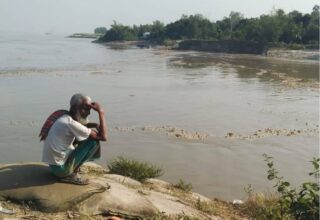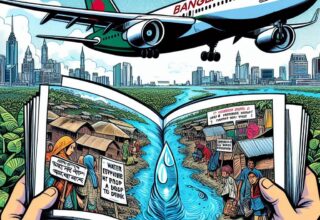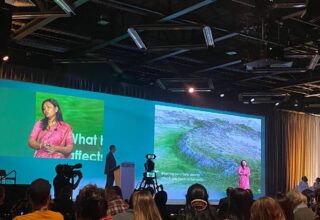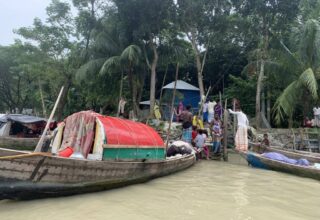As part of my time at ICCCAD, I worked as a translator for visiting researcher Kathinka Evertsen. Her research focused on differences in the migration experiences of men and women from the Bhola District. Bhola is heavily affected by river erosion, flooding and storms, and is among the areas most affected by climate change in Bangladesh. A part of Ms. Evertsen’s research involved interviewing migrants who have settled in the ‘Bhola’ slum in Mirpur. Among one of the oldest slums in Dhaka, Bhola slum is home to generations of migrants who left their villages as victims of climate change, and the aim of the research was to explore their personal stories.
I was asked to help translate during the interviews with the women and was immediately keen to be involved. As an undergraduate student who has completed only one year of study, I have not been involved in research work before and looked forward to learning more from this experience.
The experience was not without its challenges. One of the biggest problems I faced in the field was translating the academic-style English questions into Bangla in a way that would be easy for slum dwellers to understand, while trying to stay true to the original English meaning. Often, the questions were too complex and had to be explained further. Explaining the questions often meant oversimplifying them to the point where they became leading. Words such as ‘migration’ – the heart of the research – do not have an exact Bangla translation that I know of, so a lot of rephrasing had to be done. I found that translating Bangla to English was far easier.
Working as a translator opened my eyes to differences between the stories of the migrants. It also helped me to see how an entire community has been built on a set of shared experiences. Most of the inhabitants of the slum are from Bhola, and they are bound together by their roots. The women we spoke to all knew at least one other person from their village and had made a new network within the slum. Many of the young girls who had come to Dhaka alone to work in the garment factories mentioned that they now liked living here since they had made friends. No matter how long they had been here, and despite differences in age and occupation, all of the people in the slum participated in their own intricate systems of hierarchy, family and kinship, which are so ingrained in the slum’s foundation that they cannot be translated.
Written by: Rushda Khandker, Intern, ICCCAD October Newsletter 2014







